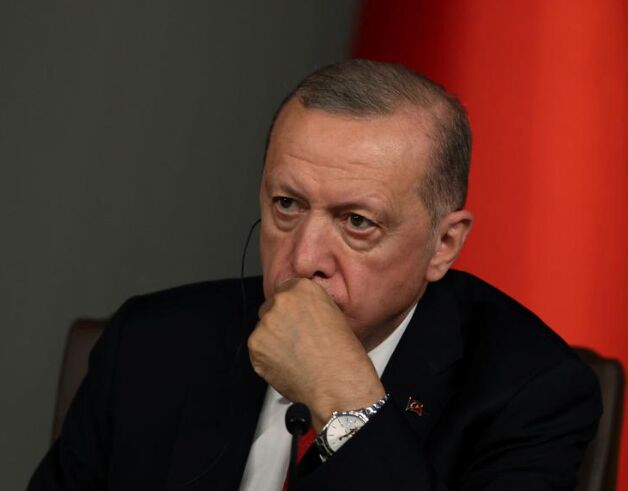Sweden-Turkey Deal Paves Way for Sweden’s NATO Membership
The North Atlantic Treaty Organisation (NATO) has reached a deal with Turkish President Recep Tayyip Erdogan to allow Sweden to join the military alliance, following a year of negotiations.
The North Atlantic Treaty Organisation (NATO) has reached a deal with Turkish President Recep Tayyip Erdogan to allow Sweden to join the military alliance, following a year of negotiations.
This milestone was achieved ahead of a key summit in Vilnius, Lithuania. In May 2022, Sweden and Finland, two Nordic countries, applied for NATO membership, which was triggered by Russian President Vladimir Putin’s war in Ukraine that raised questions as to whether the conflict would have happened if Ukraine had been a NATO member.
There are some minimum requirements for a country to be eligible to join NATO, such as upholding democracy, tolerating diversity, respecting the sovereignty of other countries and so on.
Once a country has met the requirements and expressed its intention to join NATO, it is invited to do so if all member countries agree. This marks the beginning of accession talks, which end with the signing of the Accession Protocol.
All member countries— 31 at present— have to sign the Protocol and then get it ratified by their national legislatures, subsequently submitting the ratified instrument to the United States government, which is the depositary of the Treaty.
Since all existing members have to undertake this process, the Turkish President’s disagreement over Sweden has effectively acted as a veto power. Turkey has argued that Sweden and Finland have ties with “terrorist” groups — a reference to the Kurdistan Workers Party (PKK) and the People’s Protection Units (YPG).
Meanwhile, Sweden has criticised Turkey for human rights abuses, especially in Kurdish regions, and questioned its democratic standards, which has not gone down well with politicians in Ankara.
It also alleged that the two Nordic countries refused to extradite 33 people wanted by Ankara. Earlier this year, protests in Stockholm where the Quran was burned also added to Turkey’s disagreement.
On a separate occasion, an effigy of Erdogan was hanged upside down, as per a Reuters report. A look at some simultaneous developments and at the Joint Statement by NATO chief Jens Stoltenberg, Mr. Erdogan, and Swedish Prime Ulf Kristersson indicates that the reasons for Turkey’s change in stance are multi-fold.
It also emerged that Sweden had agreed to support some of Turkey’s bids to join and some of its demands at the EU in exchange for Mr. Erdogan’s agreement to Sweden’s NATO bid.
This membership aligns with NATO’s expansion plans, consolidates NATO’s security efforts and defence integration in the Nordic, Baltic region, and Arctic regions, and brings NATO closer to Russia’s borders. Sweden also has a sophisticated army and defence technology, which could benefit NATO.
For Sweden, it means securing NATO protections that only formal membership brings. The Turkish President has said he will get Sweden’s Accession Protocol ratified in Turkey’s Grand National Assembly as soon as possible.
It is yet to be seen how long his administration will take to introduce the document in the legislature and convince hard line politicians who are against Sweden over the alleged Kurdish ties.




